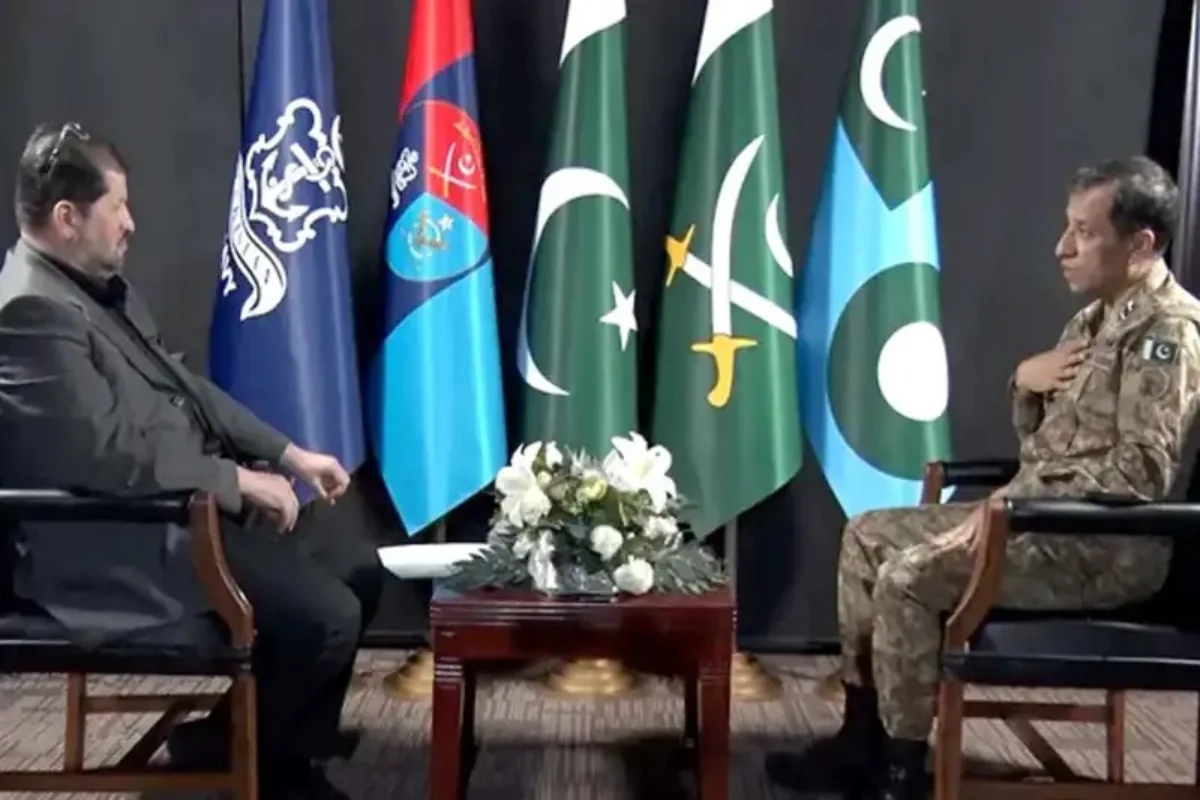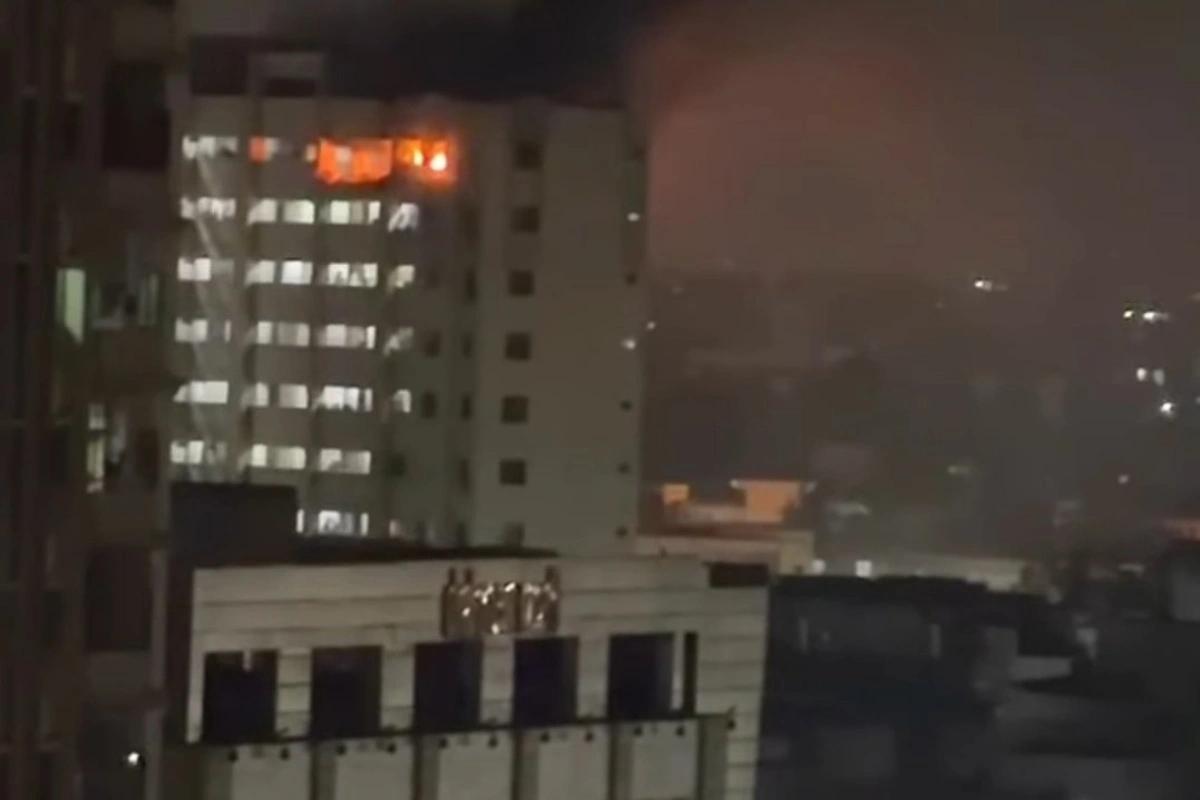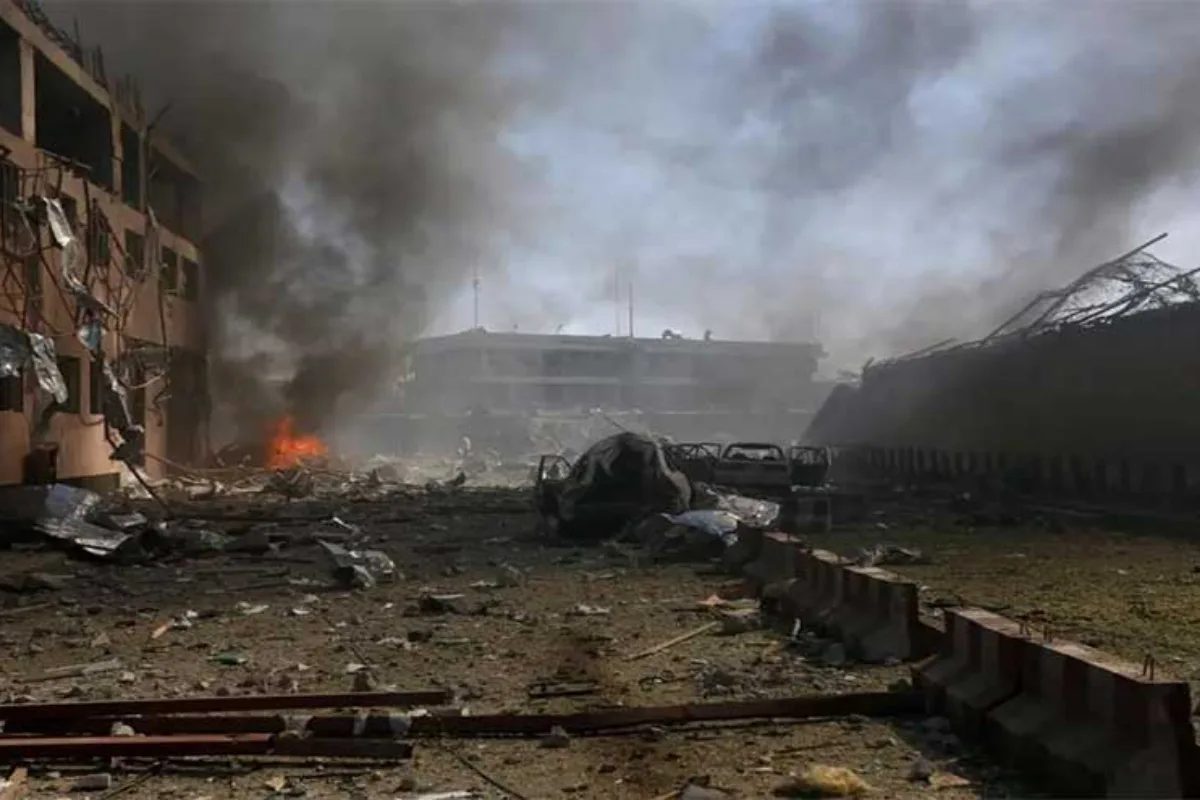Pakistan Hasn’t Yet Utilized Full Strength of Its Conventional Forces in War Against India: DG ISPR

Pakistan Hasn't Yet Utilized Full Strength of Its Conventional Forces in War Against India: DG ISPR
Inter-Services Public Relations Director General Lieutenant General (DG ISPR) Ahmed Sharif Chaudhry stated Pakistan has not fully utilized the strength of its conventional forces in the recent war against India.
In an interview with Al Jazeera, the spokesperson for Pakistan’s military noted that a significant portion of Pakistan’s conventional forces remains engaged in counterterrorism operations, particularly against Indian-sponsored terrorism in Balochistan and Khyber Pakhtunkhwa. Despite the external conflict, he said, no reallocation of troops occurred, underscoring Pakistan’s operational resilience.
Victory Rooted in Faith and National Unity
DG ISPR emphasized that while Pakistan claims ownership of its defensive efforts, ultimate victory is granted by God. The widespread celebrations across the country reflect not just military success but a deep-rooted national unity. This conflict, the spokesperson highlighted, transcends traditional warfare—it’s a battle of conviction and collective spirit.
The Narrative War: Truth Versus Misinformation
Framing the conflict as a war of truth, the military representative stated that Pakistan has consistently exposed false narratives, particularly following the Pulwama incident. He challenged India to present concrete evidence to any international forum—something he says New Delhi has failed to do. India’s ongoing investigations and lack of transparency, according to him, further highlight the absence of moral or factual justification for its actions.
Addressing False Allegations and Propaganda
He strongly refuted recent claims by Indian media, including the accusation that Pakistan attacked the Golden Temple—labeling it as a blatant lie. Pakistan, he said, deeply respects Sikh religious sites and has close cultural and religious ties with the Sikh community. Such allegations contradict Pakistan’s values, which prohibit targeting civilian or religious locations.
Crisis of Credibility in Indian Media
According to the spokesperson, India’s information landscape is plagued by misinformation, with senior military officials disseminating unverified claims. He contrasted this with Pakistan’s approach, noting that it has not censored media or jailed journalists during the conflict—arguing that true credibility comes from transparency, not suppression.
Unified Military Command and National Support
The DG ISPR praised the seamless coordination between Pakistan’s armed forces and political leadership, calling their unity an “iron wall” against aggression. He highlighted the integration of the army, air force, navy, and the nation’s political framework in presenting a cohesive defense.
Pakistan Air Force: Pride and Performance
He lauded the professionalism of the Pakistan Air Force during the recent aerial engagements, calling their performance on the nights of the 6th and 7th a model that will be studied for years. The use of advanced aircraft like the JF-17 Thunder and J-10C, alongside ground-based systems such as the Fateh-1 and Fateh-2 missiles, was presented as evidence of Pakistan’s technological capabilities.
Nuclear Deterrence and Responsible Conduct
He stated that the United States, China, Saudi Arabia, Qatar, the United Arab Emirates, and other global powers understand that the very idea of war between two rival nuclear states is both dangerous and absurd. He criticized India, saying, “India has been gripped by war hysteria for years—equivalent to playing with fire. They are creating an environment that could lead to mutual destruction. That is why Pakistan acted wisely and did not allow tensions to escalate throughout this conflict.”
Ceasefire and Path to Real Peace
While acknowledging a current ceasefire, the DG ISPR argued that true peace remains elusive due to India’s internal political motivations and its treatment of minorities. He called for a shift away from war rhetoric toward genuine introspection and reform within India.
Extremism and Internal Instability in India
The DG ISPR attributed regional instability to the rise of Hindutva ideology and said India’s attempts to externalize these internal challenges onto Pakistan are misleading. He reiterated Pakistan’s stance that peace in Kashmir must come through adherence to UN resolutions and the democratic will of the Kashmiri people.
Water Rights and Strategic Concerns
The spokesperson rejected any notion of India unilaterally controlling river waters flowing into Pakistan, noting that most of these originate in Kashmir—a disputed territory. If the region were to democratically join Pakistan, water rights would shift accordingly, making India the lower riparian state.
Global Stakes and Pakistan’s Role
He reaffirmed Pakistan’s commitment to peace in partnership with countries like China and other responsible global powers. In contrast, he urged India to abandon reliance on fabricated narratives and focus on self-reliance.
Firm Deterrence and Future Readiness
Concluding the interview, DG ISPR Ahmed Sharif stated that Pakistan’s firm response to past aggression demonstrates its resolve. Should India act provocatively again, he warned, Pakistan’s retaliation would be even more decisive and forceful.
Read More: Pakistan won’t be intimidated by use or threat of force, says military’s top brass
Catch all the Pakistan News, Breaking News Event and Trending News Updates on GTV News
Join Our Whatsapp Channel GTV Whatsapp Official Channel to get the Daily News Update & Follow us on Google News.














